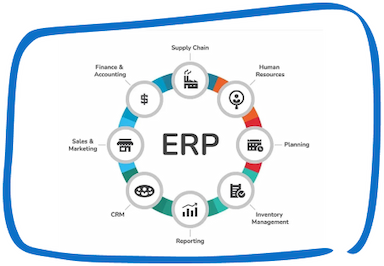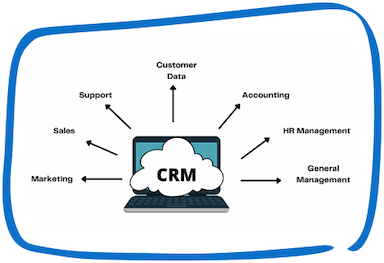For a long time, the UAE has been a tax haven! Entrepreneurs and small company owners from all over the world were flocking to Dubai and other Emirates to pursue their goals. Because of the subsidized corporation tax and hospitable business climate. To flourish. To accomplish.
The corporate climate evolves as time goes on. The legal environment and international commitments evolve. Change is an investment. The tax climate is also changing.
What is Corporate Tax?
The term “corporate tax,” sometimes known as “corporation tax” or “business tax,” refers to a type of direct tax levied against the profits or assets of companies or other similar legal entities. Many nations levy such taxes at the national level, and is a comparable tax. It can be levied at the state or municipal level. The taxes sometimes go by the name income tax or capital tax.
Corporate Tax in UAE
The United Arab Emirates (“UAE”) adopted Federal Decree-Law No. (47) of 2022 on the Taxation of Corporations and Businesses (hence referred to as the “Corporate Tax Law”) on December 9, 2022.
The Corporate Tax in UAE Law, which takes effect on 1 June 2023, provides the legislative foundation for the introduction and execution of a Federal Corporate Tax in UAE (“Corporate Tax”) in the UAE. The implementation of Corporate Tax is designed to assist the UAE in achieving its strategic goals and accelerating its development and transformation. The assurance of a competitive Corporate Tax framework that corresponds to international norms, along with the UAE’s wide network of double tax treaties, will solidify the UAE’s position as a leading corporate location.
The UAE Corporate Tax regime draws from best practices globally and contains concepts that are widely recognized and accepted due to the UAE’s status as a hub for global commerce and finance. This guarantees that the UAE Corporate Tax policy is easily understood and that its effects are evident.
How to calculate Corporate Tax in UAE
The UAE government implemented a 5% value-added tax (VAT) in the country on January 1, 2018. They announced the implementation of a Corporate tax in UAE in January 2022. The basic corporation tax rate will be 9% for enterprises with net annual earnings of AED 375,000 or more. Moreover, 0% for businesses with net annual profits of less than AED 375,000. The statement includes a 15% corporation tax rate for multinational businesses with annual earnings of more than 750 million Euros. Additionally, this is consistent with the Global Minimum Corporate Tax Rate Agreement. The nation intends to begin implementing the corporation tax regime on June 1, 2023.
Terms of Corporate Tax in UAE
The Corporate Tax in UAE is levied on Taxable Income generated by a Taxable Person during the Tax Period. It would typically be levied on an annual basis, with the Taxable Person calculating the Corporate Tax amount on a self-assessment basis. This implies that the Taxable Person calculates and pays Corporate Tax by submitting a Corporate Tax Return to the Federal Tax Authority.
The Taxable Person’s accounting income (i.e. net profit or loss before tax) is important. Since it’s in their financial statements and is the starting point for computing Taxable Income. The Taxable Person must then make specific adjustments to calculate their Taxable Income for the applicable Tax Period. Accounting income, for example, needs adjustment for revenue that is free from Corporate Tax in UAE. Apart from expenditure that is entirely or partially non-deductible for Corporate Tax reasons.
Taxable persons
Corporate Tax in UAE, in general, applies to the following “Taxable Persons”:
Natural persons (individuals) who conduct a Business or Business Activity in the UAE as specified in a Cabinet Decision is in issue in due course. Non-resident juridical persons (foreign legal entities) with a Permanent Establishment in the UAE (which is explained under [Section 8]).
As “Taxable Persons,” judicial persons created in a UAE Free Zone are subject to Corporate Tax and must adhere to the conditions outlined in the Corporate Tax Law.
A person who satisfies the requirements is a Qualifying Free Zone Person. They can benefit from a Corporate Tax rate of 0% on their Qualifying Income[section 14].
Non-resident individuals who do not have a Permanent Establishment in the UAE or who generate income from the UAE. I.e they’re not in connect with their Permanent Establishment may be liable to Withholding Tax (at the rate of 0%). Withholding tax is a type of Corporate Tax. It’s collection happens at the source by the payer on behalf of the income receiver. Many tax systems have withholding taxes. This generally would apply to the cross-border payment of dividends, interest, royalties, and other forms of income.
Conclusion
Companies must compile their financial accounts in accordance with widely recognized accounting rules. Having the current year’s financial accounts audit is a good idea (the year before the UAE CT comes into effect). This would be advantageous. Since it would make it simpler for Tax Authorities to evaluate or depend on opening balances wherever they are necessary. One day, the many costs deemed unallowable by businesses must be in consideration carefully. Also evaluate such costs, examine the tax implications, and plan and implement an alternate solution.
Note: The sections and Laws mentioned in the article are primarily adhering to UAE Tax Laws
Speak with Our Team!
4.9 Stars
1k+ reviews on







